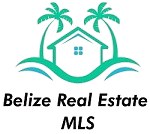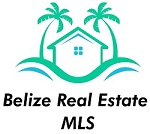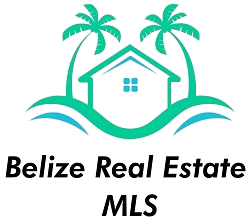
Caribbean Gap Equity Loans
Are you dreaming of owning a property in the Caribbean but need some financing? Attaining a mortgage as a foreign buyer is nearly impossible and many sellers don’t want to finance, which is where we come in. Our process is simple, quick, and has no upfront fees!
You can purchase a vacation home, retirement property, or land. It is a simple process with quick answers.
Key Takeaways
- Attain Belize real estate loans ranging from $50,000 to $2,000,000.
- Caribbean Gap Equity Loans provides competitive interest rates as low as 10% for interest-only mortgage financing.
- We can provide fast loan approvals, often within 1-2 business days.
- Loan-to-value (LTV) ratios for Belize real estate mortgages go up to 50% of the property’s value.
- Caribbean Gap Equity Loans works exclusively with Belize Real Estate MLS.
Belize Real Estate Lending Process
Caribbean Gap Equity Loans is a private lender. It is our goal to help you purchase a property in Belize, Costa Rica, Honduras or Mexico. We have a few guidelines that must be met.
- Property is located in Belize, Costa Rica, Honduras or Mexico
- You put down at least 50% of the purchase price
- Purchase price must get in-house appraisal approval
- Must not be a citizen of the country you are buying in
Loan Request
"*" indicates required fields
Challenges of Traditional Bank Financing for Foreign Buyers
Expats and non-residents looking to purchase property often face several obstacles. Securing a mortgage can be challenging for foreign buyers due to strict lending requirements from local banks.
One major hurdle is the need for a strong credit and employment history within the country. This requirement can be difficult for newcomers or those with limited local financial records.
Additionally, banks typically require proof of residency, which poses a problem for individuals purchasing vacation homes or investment properties while living abroad.
These challenges make obtaining a mortgage complex for foreign buyers. Understanding these potential barriers allows prospective buyers to better prepare and explore suitable financing options for their real estate investments.
Private Lenders: A Flexible and Customized Financing Solution
Private lenders provide a tailored and flexible approach to real estate financing. Unlike traditional banks, they often offer competitive interest rates, flexible repayment terms, and faster approval processes. This makes Belize real estate financing an appealing option for borrowers seeking personalized loan solutions.
Understanding the Loan-to-Value (LTV) Ratio
The Loan-to-Value (LTV) ratio is a critical factor in financing property in Belize. It measures the amount you intend to borrow against the value of your property. A lower LTV indicates less borrowing relative to the property’s value, which can lead to more favorable loan terms.
How Private Lenders Determine Loan Amounts
Private lenders assess your property’s market value, existing mortgages, and credit profile to determine your potential loan amount. They design customized financing options aligned with your financial goals and unique circumstances.
Maximizing LTV for Better Loan Terms
Maintaining a favorable LTV ratio can secure better terms from private lenders, including lower interest rates and more flexible repayment plans. This is particularly beneficial for financing real estate in Belize and expanding a real estate portfolio.
What is private lending and what do they offer?
Private investors in are individuals or companies that lend money to borrowers who may not qualify for a loan from a commercial bank with their red tape.
Private investors may charge higher interest rates than commercial or private banks in some instances, but they also offer more flexible terms for your Belize real estate financing than Belizean banks.
What are the loan requirements?
- 50% down payment
- Property located in Belize
- In-house appraisal approval
- Must not be a citizen of Belize
What does Caribbean Gap Equity Loans do to secure loans?
The loan is 100% secured by the property you purchase. In some cases, the private lender may ask for secondary collateral.
Do you charge any up-front or hidden fees that I will have to pay before getting my loan?
No, we never charge any upfront or hidden fees. There is a 2% Origination Fee, which is paid out of the loan. The first quarter of loan payments are also paid out of the loan at funding.
How much money can I borrow against my property?
The private lenders we work with will lend up to 50% of the current market value of your property.
What are the minimum and maximum that I can borrow?
$50K US is the minimum and $2M US is the maximum.
How long can I borrow the money?
All loans are interest-only and set for 5 years. The loan is renewable for another 5 years. There is no prepayment penalty.
Who lends the money to me for my loan?
We collaborate with a network of private investors and lenders who typically fund loans individually. Many of these lenders are retirees who have downsized after selling their homes and now invest in GAP financing opportunities. Unlike conventional banks, we have exclusive access to these private investors, enabling us to offer competitive interest rates, lower closing costs, and more flexible financing options.
What happens to my property title during the loan term?
A mortgage lien is placed on the property by the lender as security for the loan. For larger loans, lenders may use a "fideicomiso de garantía" (guarantee in trust), where the property title is conditionally transferred to a registered trustee for the duration of the loan.
How much is the interest rate I should expect to pay?
Typical equity loan interest rates charged to borrowers are from 10% up to 14% per annum. Lower rates may be considered for lower loan-to-value purchases.
What is an Interest Only Loan?
An interest-only loan allows the borrower to pay only the interest on the loan for a specified period, leaving the principal balance unchanged during that time. Once the interest-only period ends, the borrower must pay the loan in full, called a balloon payment.
What does “Loan to Value” mean?
Loan-to-Value (LTV) is calculated by dividing the loan amount by the property’s value. For example, if your property is worth $250,000 USD and you want to borrow $125,000 USD, your LTV would be 50%. A lower LTV typically makes it easier to secure financing and qualify for better interest rates and loan terms.





